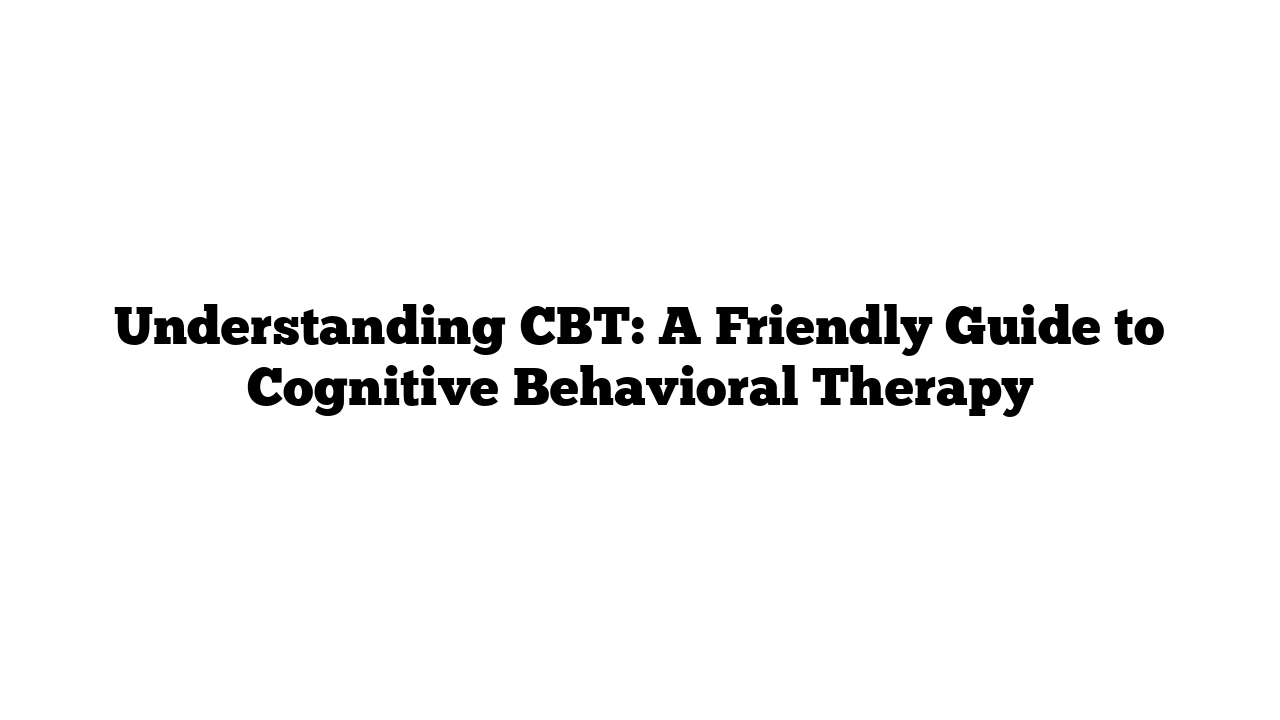If you’re navigating life with a mental health condition, it’s normal to feel uncertain about where to turn for help. One common recommendation from healthcare providers in the USA is Cognitive Behavioral Therapy (CBT). But what exactly is CBT, and how can it benefit you?
What is CBT?
CBT is a type of talking therapy that combines two approaches: Cognitive Therapy and Behavioral Therapy. Simply put, it involves examining your thoughts and the behaviors that stem from them. Rather than getting lost in past experiences, CBT is focused on the present—helping you tackle the issues affecting your life right now.
Many people might picture therapy sessions as lying on a couch while a therapist analyzes your dreams. In reality, CBT is much more practical and goal-oriented. It’s designed to help you identify how your thinking impacts your emotions and behaviors.
How Does CBT Work?
The foundation of CBT is straightforward: our thoughts influence our feelings and behaviors. For instance, let’s say you burn dinner. Instead of just laughing it off, you might start to think negatively about yourself, feeling inadequate or worthless. This can lead to actions such as:
- Withdrawing from family and friends
- Snapping at loved ones out of frustration
- Avoiding situations that you fear might go wrong
Alternatively, if you’re invited out for drinks and you begin to think negatively, this may lead to feelings of anxiety and fear, causing you to decline the invitation or even use substances to cope.
Over time, these cycles of thoughts, feelings, and behaviors can become habitual. You might find yourself avoiding more situations or automatically blaming yourself when things don’t go as planned.
The Role of a CBT Therapist
A CBT therapist plays a vital role in helping you break this cycle. They will guide you in identifying negative thoughts and behaviors that contribute to your difficulties. Through therapy, you can learn to challenge these negative thoughts and change your behavior, ultimately improving your mood.
CBT can be beneficial for various mental health diagnoses and can be conducted in different formats, including:
- One-on-one sessions
- Group therapy
- Self-help books
- Online resources
- CDs or DVDs
Is CBT Right for You?
While CBT can be effective for many, it’s not a one-size-fits-all solution. Some individuals may struggle with expressing their feelings, making it hard to engage in the process. Additionally, CBT typically focuses on short-term treatment, which may not suffice for those with more complex issues.
It’s also important to note that CBT requires commitment. Your therapist may assign homework, and practicing the skills learned in sessions is crucial for seeing improvements in your mental health.
If you’re unsure whether CBT is the best approach for you, don’t hesitate to discuss alternative treatments with your GP. Websites like Mind offer valuable resources and information on various mental health treatments and support services, including a helpline for personalized guidance.
Explore Your Options
Understanding your mental health and exploring the right treatment options is essential. Remember, seeking help is a positive step toward feeling better.
For more resources and information about mental health treatments, consider visiting medicaltimes.io for comprehensive insights.
By embracing therapies like CBT, you take an active role in your mental health journey. As the famous saying goes, “The greatest weapon against stress is our ability to choose one thought over another.” So why not choose the path that leads to better mental health today?
